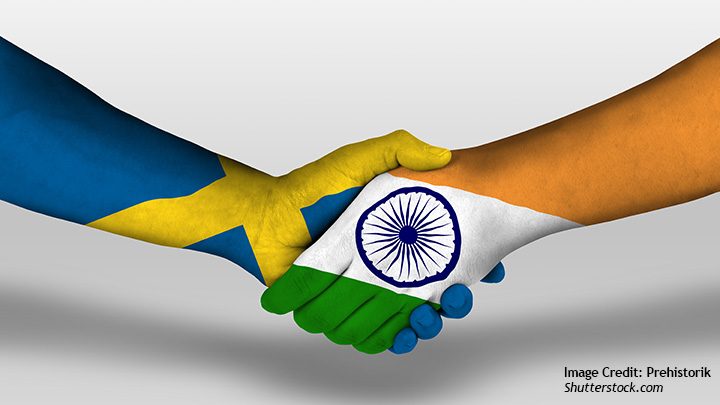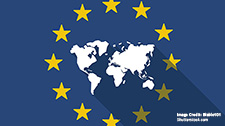India-Sweden Strategic Compass: January-February 2025

Mariya Krupach, Giulia Saccone, Toby Logan and Jagannath Panda
The evolving geopolitical landscape, particularly marked by the U.S.-China rivalry, is indeed prompting nations to reassess their diplomatic strategies and realign their foreign policies. For countries like India and Sweden, this context presents both challenges and opportunities in navigating their international relations in 2025. India, with its growing economic and military capabilities, is keen to assert its autonomy on the global stage while maintaining strong ties with the U.S. Through platforms like the Quad (Quadrilateral Security Dialogue), India has solidified its partnership with the U.S., Japan, and Australia, focusing on regional security and economic cooperation in the Indo-Pacific. However, India is also pursuing a multi-vector foreign policy that seeks cordial relationships with other major powers, including Russia and China, allowing it to leverage its position without over-dependence on any single country.
Similarly, Sweden, as a member of the EU, is navigating its relations with both the U.S. and China. While the U.S. remains a key partner, Sweden’s commitment to the European Union’s approach to trade and diplomacy requires a careful balancing act, particularly in light of its reliance on trade with China. The ongoing tensions around technology, trade policies, and global governance issues compel Sweden to craft a foreign policy that emphasizes European values, sustainability, and security. The partnership between India and Sweden exemplifies how middle powers can forge strategic alliances in this complex environment. Their relationship has strengthened through joint initiatives in innovation, climate change, and sustainable development, demonstrating a shared commitment to key global challenges. As both nations pursue greater autonomy in their diplomatic endeavors, this partnership may further deepen, presenting a model for other countries navigating similar geopolitical complexities. This balance of autonomy and partnership may lead to new alignments and innovative collaborations that address global challenges while enhancing their respective positions on the world stage.
Related Publications
-
ISDP-Embassy of India in Sweden Dialogue Calls for Focusing Momentum in India-Sweden Ties
Focus on six key areas: Science & Technology, Innovation, Energy, Sustainable Development, Defense, and Trade Economics. The partnership between India and Sweden can be replicated as a model for the […]
-
India-Nordic Budding Dynamics: Sweden, a Vital Gateway?
The India-Nordic summits in 2018 and 2022 had the clearly outlined goal of the expanding strategic coordination between India and the Nordics. The spike in trade reflects a healthy economic […]
-
India-Sweden Ties: Forging a Cohesive Partnership
From areas like human rights and political differences to climate and sustainability, both countries often differ on certain points, sometimes causing friction in their bilateral relations. Most prominently, India and […]
-
India-Sweden Ties as a Gateway to India-Nordic Engagement
Executive Summary Sweden and India engage on three interconnected levels: bilaterally, through the Nordic region, and through the EU—all of which require consistent political attention and a structured strategic approach. […]
-
Forecasting European Security in 2025: Will Transatlantic Ties Test Europe’s Indo-Pacific Limits?
In late December 2024, Finland—one of the latest entries to the North Atlantic Treaty Organization (NATO)—seized an oil tanker, with alleged links to Russia’s so-called “shadow fleet,” on grounds of […]




